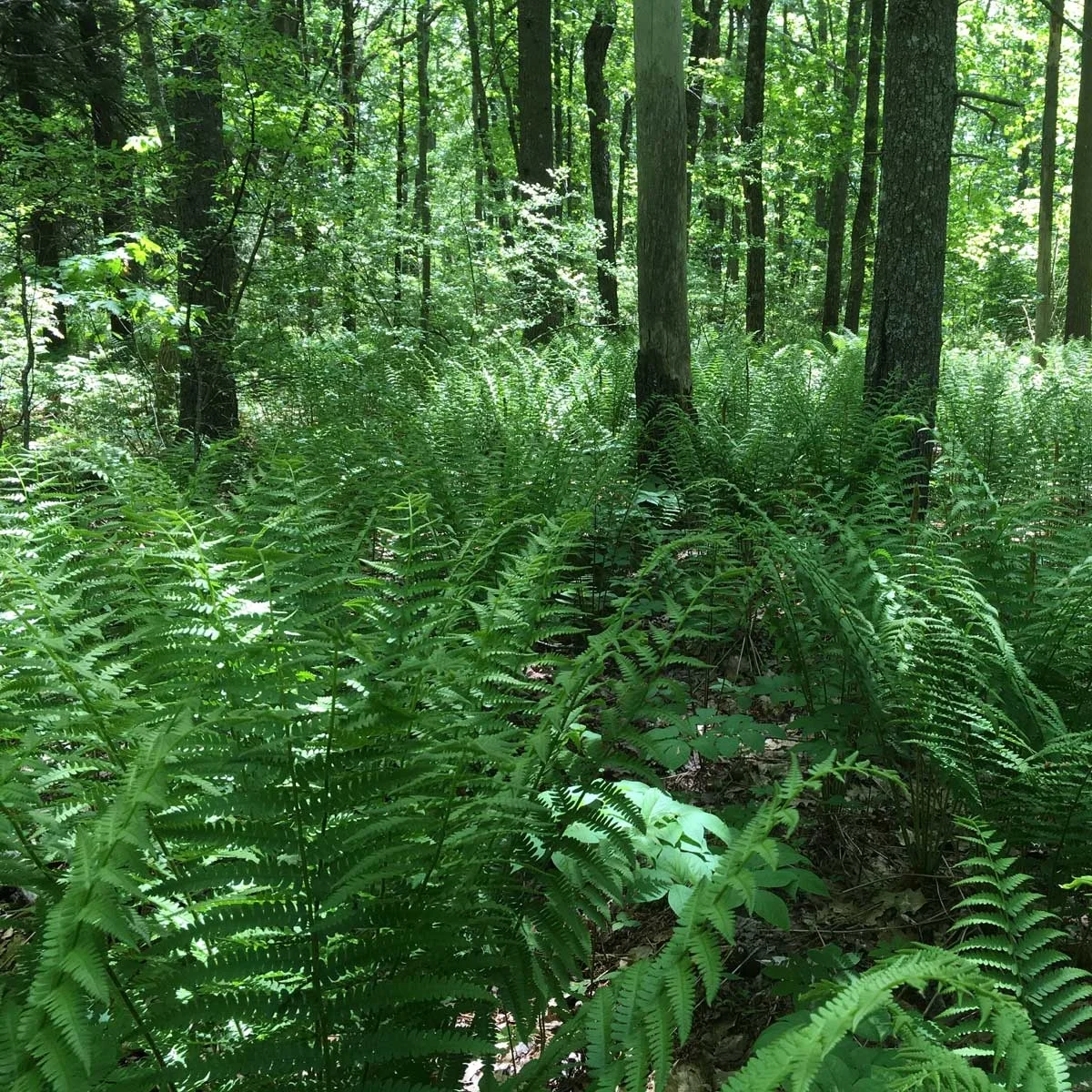““Reserve”, an area designated by the department of conservation and recreation or division of fisheries and wildlife that conserves intact ecosystems that are influenced primarily by natural processes. Management priorities will include: biodiversity maintenance, nutrient cycling and soil formation, long‐term carbon sequestration, protection of late-successional and old growth forest habitats, and opportunities for wilderness recreation. The timber in Reserves shall not be sold, removed, or destroyed. ”
More than 60 percent of Massachusetts is covered by forests. If kept intact, these forests will continue to provide climate, habitat, cultural, recreational, and economic benefits. If they are cut, these values will be diminished or lost. None of state’s public conservation lands have guaranteed protection from logging.
RESTORE: The North Woods has been in the forefront of efforts to give Massachusetts state lands the same level of protection as our National Parks. We co-authored two bills which have been submitted to the Massachusetts Legislature this session.
H.4150, “An Act relative to forest protection,” would permanently protect 412,000 acres of land administered by the Department of Conservation and Recreation (DCR).
H.904, “An Act relative to increased protection of wildlife management areas,” would permanently protect 30% of the land administered by the Division of Fisheries and Wildlife (MassWildlife) — about 51,000 acres — by 2030.
H.894, “An Act relative to forest management and practices guidelines,” would establish an independent Advisory Council of scientists and experts to oversee an evaluation of Massachusetts publicly owned forest lands on an ongoing basis every five years, with robust public participation and goals.
These bills would update century-old public land policies written before we recognized the climate crisis and global loss of biodiversity. The bills would help address these concerns by designating about 462,000 acres of public forest and watershed lands — 9% of the land base — as permanently protected parks and reserves that are influenced primarily by natural processes. Only about 1% of the state’s land base now has this level of protection.
The state agencies already have lands designated as parks and reserves. These bills would expand these areas and give them permanent legal protection, which they do not currently have. Together these bills represent a major opportunity for Massachusetts to do its part to help mitigate climate change and protect our native natural heritage.
If you are a Massachusetts resident, please send a letter to your state Representative and Senator, asking them to co-sponsor the bills HD.4430, H.904, and H.894. You can do this by clicking on the button below.
For more information on this and other important Massachusetts forest protection legislation, as well as what you can do to help, click on the link below to visit our Save Mass Forests web page.
To keep informed about this important issue, join our Save Mass Forests email list below.
Windsor State Forest clearcut (Matera)
Logging of State and Municipal Lands
Massachusetts is fortunate to have 610,000 acres of state conservation lands, stretching from the Atlantic Coast to Mount Greylock. However, none of these lands are permanently protected from logging and other industrial exploitation. Most of the state's 300,000 acres of county and municipal forests are also not protected from these uses. Industrial forest interests claim that logging is good for forest health, wildlife, climate, and the economy. In fact, logging harms all of these values. Here is a shocking overview of how our state lands have been damaged by logging. A new citizen petition is calling on the governor to enact a moratorium on logging of state-owned lands across Massachusetts.
Burning wood pellets
Woody Biomass Subsidies
Industrial forestry and biomass energy interests are pushing expanded programs to cut down forests and burn them for heat and electricity. They ignore the fact that this promotes deforestation, releases twice as much carbon as burning coal, and spews toxic pollution that harms public health. Despite the many reasons to oppose wood energy, Massachusetts state agencies have approved regulations that offer public subsidies and incentives to promote the logging and burning of forests for heat. Many nonprofit groups and concerned citizens are opposing this irresponsible policy.
Maturing forest, western Massachusetts
Private Forest Land Protection
The vast majority of Massachusetts forest lands are in private ownership. Forestry interests are trying to persuade more landowners to log their lands. Most landowners prefer to keep their forests standing and there is a state program to provide tax incentives for this. However, this program provides more support for logged forests and this is only temporary. RESTORE is working with other organizations to promote change in state programs that help private landowners to keep their forests standing and to ensure that this protection is permanent.





